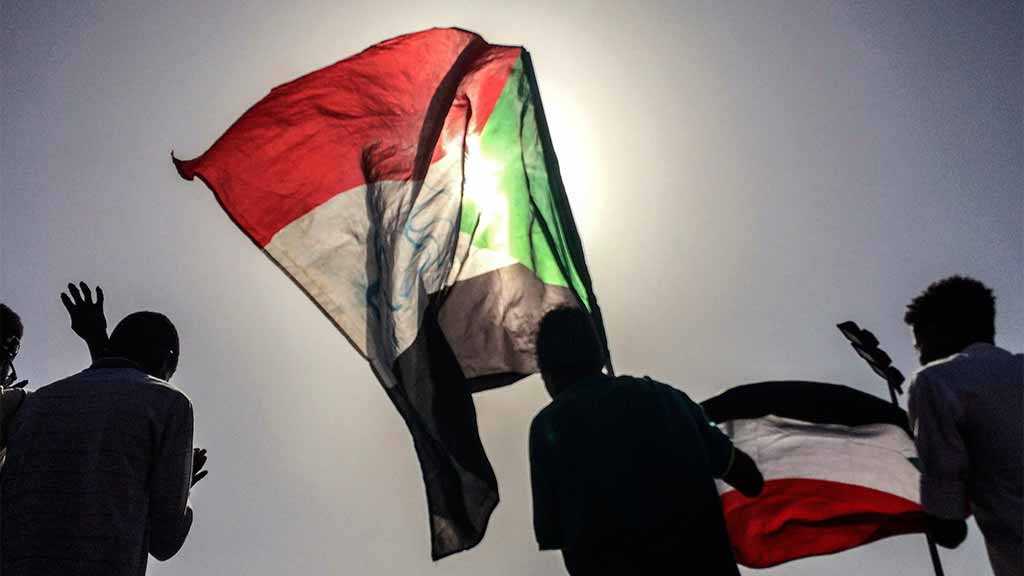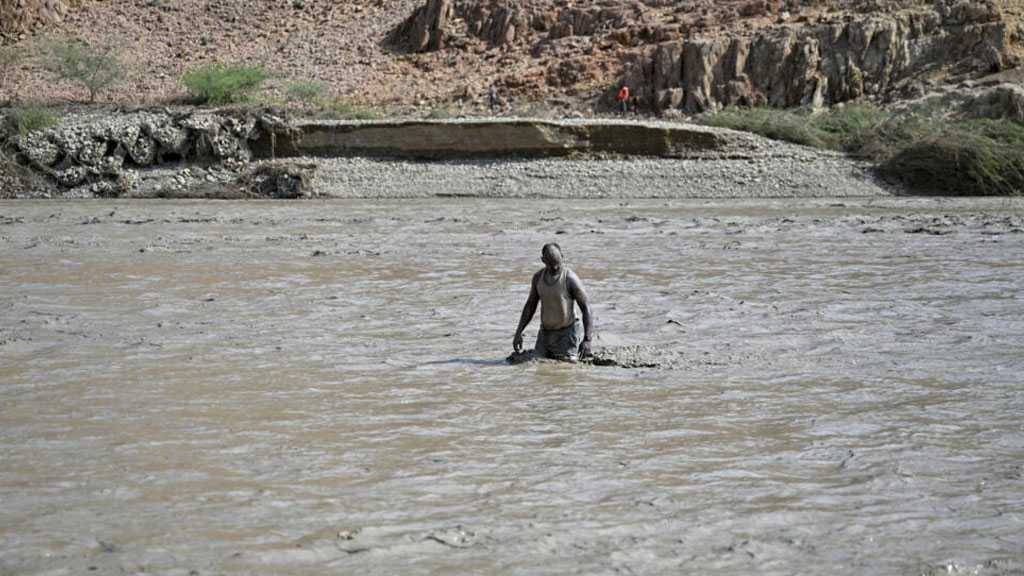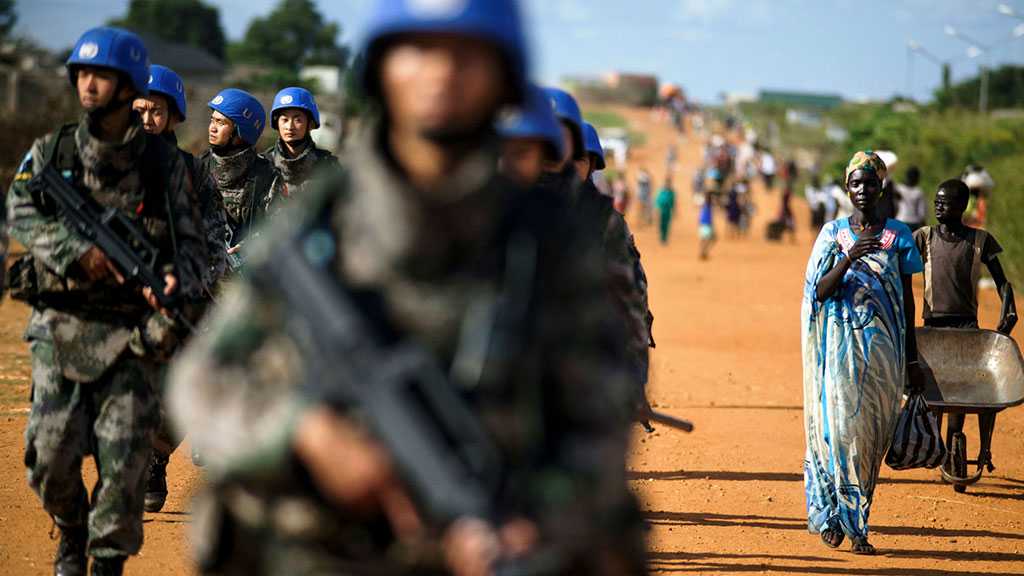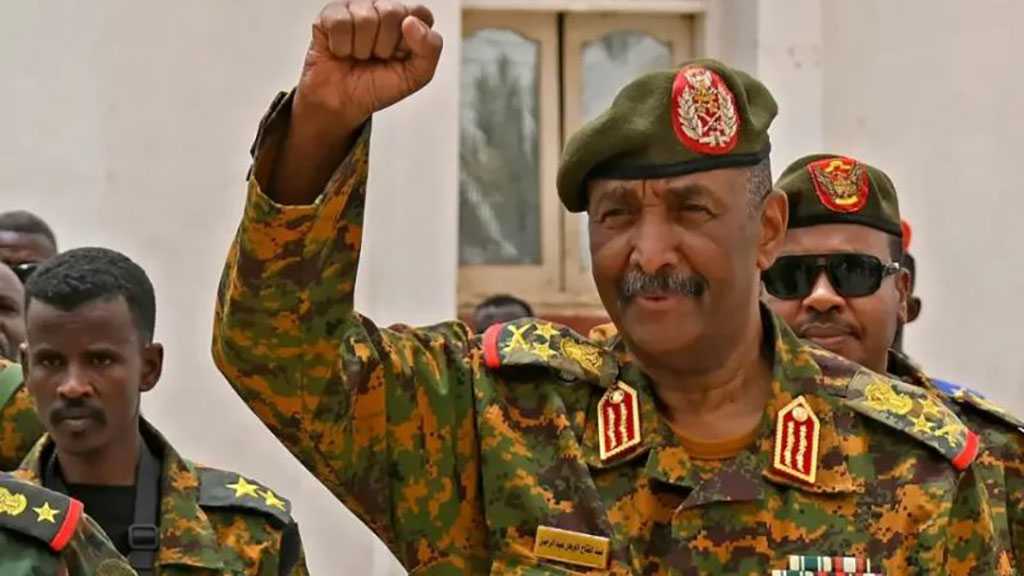Sudan Protesters Demand Immediate Civilian Rule

By Staff, Agencies
Sudanese protesters Sunday demanded the country’s military rulers “immediately” hand power over to a civilian government that should then bring ousted leader Omar al-Bashir to justice.
Thousands remained encamped outside Khartoum’s army headquarters to keep up pressure on a military council that took power after ousting Bashir Thursday.
The organization which spearheaded the protests against Bashir, the Sudanese Professionals Association, Sunday called on the military council “to immediately transfer power to a civilian government.”
The SPA also demanded the next “transitional government and the armed forces to bring Bashir and all the chiefs of the National Intelligence and Security Service ... to justice.”
“The Sudanese Professionals Association calls on its supporters to continue with the sit-in until the revolution achieves its demands,” the SPA added.
Earlier the military council met with political parties and urged them to agree on an “independent figure” to be the country’s prime minister, an AFP correspondent present at the meeting said. “We want to set up a civilian state based on freedom, justice and democracy,” a council member, Lt. Gen. Yasser al-Ata, told several political parties, urging them to agree on the figures to sit in civilian government.
The protesters have insisted civilian representatives must join the military council.
A 10-member delegation representing the protesters delivered their demands during talks with the council late Saturday, according to a statement by the Alliance for Freedom and Change umbrella group spearheading the rallies.
The Foreign Ministry urged the international community to back the military council “to achieve the Sudanese goal of democratic transition,” it said in a statement.
The council new chief Gen. Abdel-Fattah al-Burhan Abdelrahman was “committed to having a complete civilian government and the role of the council will be to maintain the sovereignty of the country,” it added.
Talks between protest leaders and the new rulers were followed Sunday by a meeting between Washington’s top envoy to Khartoum, Steven Koutsis, and the military council’s deputy Mohammad Hamdan Daglo, widely known as Himeidti.
Himeidti is a field commander for the Rapid Support Forces counterinsurgency unit, which rights groups have accused of abuses in the war-torn Darfur region.
Abdelrahman Saturday vowed to dismantle Bashir’s regime, lifting a nighttime curfew with immediate effect. He also pledged that individuals implicated in killing protesters would face justice and that protesters detained under a state of emergency imposed by Bashir during his final weeks in power would be freed.
Abdelrahman took the oath of office Friday after his predecessor Gen. Awad Ibn Auf stepped down little more than 24 hours after Bashir’s ouster. But while celebrating the fall of both men in quick succession, protesters remain cautious.
Tens of thousands of people have massed nonstop outside the army headquarters since April 6, initially to urge the military to back their demand that Bashir be removed.
Protest leaders say their demands include restructuring the country’s feared NISS agency, whose chief Saleh Ghosh resigned Saturday.
The military council late Sunday announced the appointment of Lt. Gen. Abu Bakr Mustafa as the new head of the intelligence agency.
Council spokesperson, Shamselddin Kabbashi, also announced the sacking of Sudan’s ambassadors to Washington and Geneva.
Khartoum’s envoy, Mohammad Atta, was a former chief of the NISS.
Kabbashi said the former regime had ordered the dispersing of the sit-in at “whatever cost” but the military had refused.
The newly formed 10-member transitional council contains several faces from Bashir’s regime.
The new military ruler Saturday evening named NISS deputy head Jalaluddin Sheikh to the council, with Himeidti as its deputy head.
Key regional power-brokers Saudi Arabia and the United Arab Emirates have voiced support for the transitional council.




